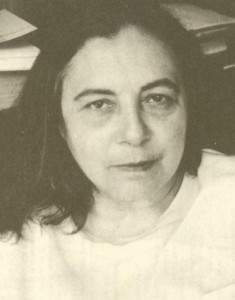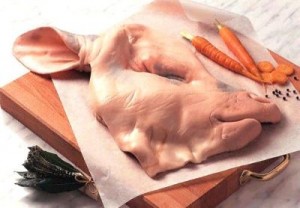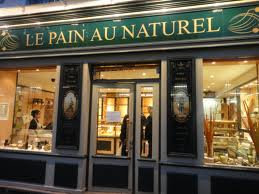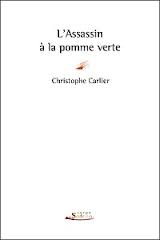The great French poet Anne-Marie Albiach died on Sunday, after a protracted illness. Anglophones may know her work from the superb translations by Joseph Simas, Lydia Davis, or Rosemarie Waldrop, or from essays by Paul Auster, Norma Cole, or Alan Davies. Her most famous books are Etat and Mezza Voce, and her work has been called “poesie blanche,” or white poetry, because of its tendency towards abstraction and nonnarrative sense.
I met Anne-Marie when I was twenty, living in France for six months, as part of Columbia’s junior year abroad program. The poets George and Chris Tysh introduced me (long distance) to the expatriate American poet Joseph Simas, who in turn led me to Anne-Marie. Soon I found myself working for her, doing her shopping and errands, accompanying her on medical visits, and, most important, providing her company during the evenings when her panic was at its worst. She read my poems and pronounced them “very American,” and never before or since have I felt my nationality so acutely.
She was a famous recluse, but she held court in her apartment in Neuilly-sur-Seine, on the outskirts of Paris, where I was often allowed to crash dinner parties with literary legends I was too young and naive to be as intimidated by as I would be now. In my memory, we served the same meal to everyone: an entree of radishes, fromage blanc, and fresh herbs; lamb chops broiled with fresh rosemary for the plat; salad; strong, stinky, delicious, soft munster cheese; wine and bread, of course; coffee, and sometimes vodka at the very end. She didn’t drink but liked to try to get me drunk, perhaps because I seemed so straight laced. When I first returned to France a few months ago, I felt a compulsion to make this meal again and again, as if in her honor.
She was a figure larger than life. A woman whom followers made pilgrimages to visit. Mysterious and haunting on the page and in person, her art so elegant, logical, spare, and austere it almost disappeared. So essentially what I think of as “French” (the way she thought of me as “American”) that France doesn’t seem the same now, without her.




